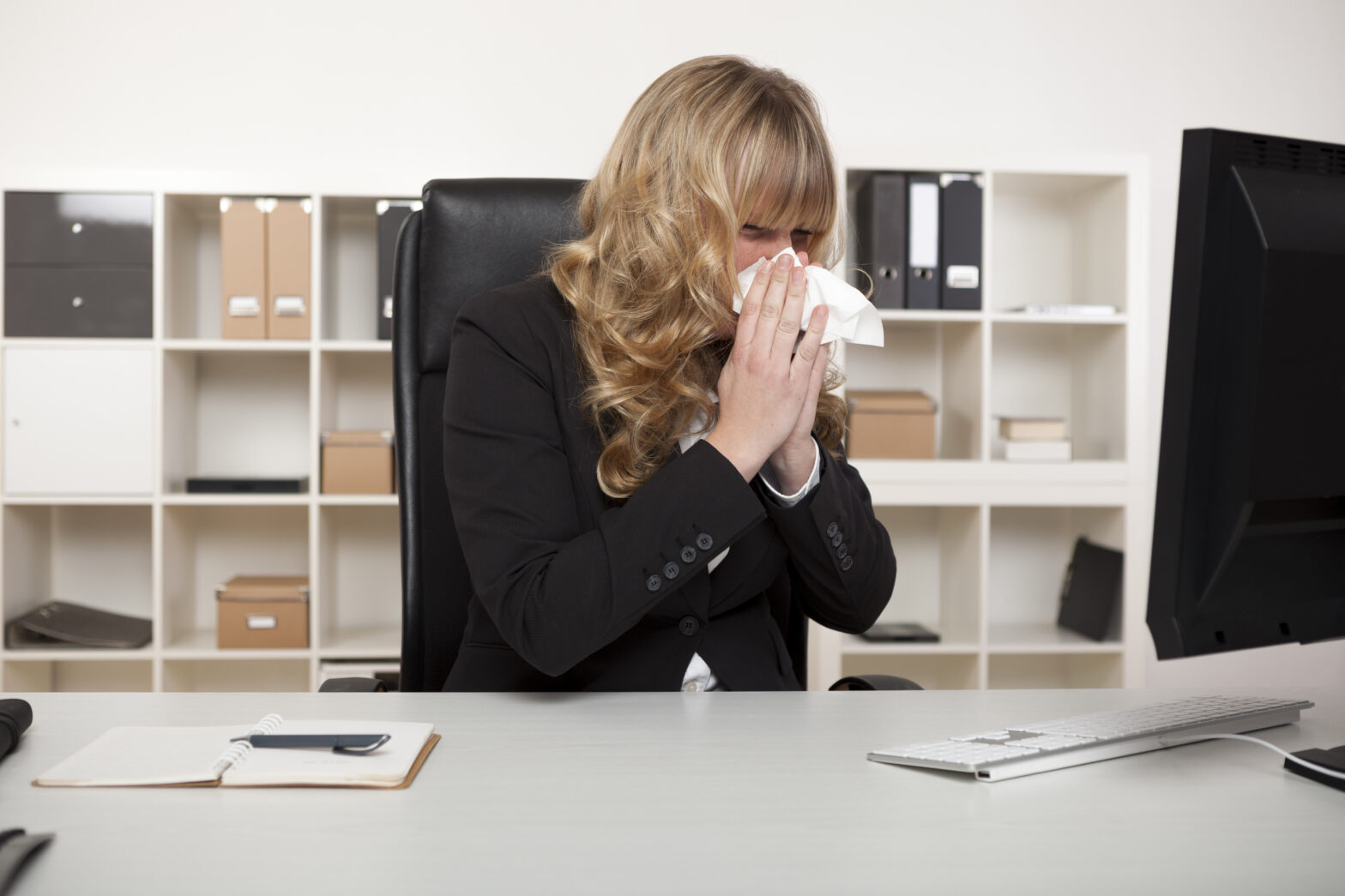Some 86 per cent of workers will go into work with an infectious illness, according to findings published in the Digital Healthcare Review by PushDoctor.co.uk.
And 88 per cent of workers admit they don’t feel comfortable calling in sick when they are unwell, regardless of how ill they are.
The data suggests this is in part due to a problem with workplace culture, as one in four workers (24 per cent) claim they feel under pressure to go into work when they are ill.
More than one in five (22 per cent) say their boss would prefer them to be at work if they had an infectious illness, as long as it wasn’t serious, suggesting many companies are not recognising the impact contagious conditions can have on the workforce’s health and, therefore, productivity.
This isn’t, however, lost on workers, with 21 per cent feeling uncomfortable being around their colleagues when they are infectious.
The illnesses workers are most likely to go into work with are coughs and colds (59 per cent), tonsillitis, sinusitis (33 per cent), throat infections or strep throat (32 per cent), flu (22 per cent) and the norovirus (15 per cent).
Utility industry workers aged 25-34 years old living in Bradford or Coventry are the most likely to brave attending work with an infectious illness.
Eren Ozagir, CEO at PushDoctor.co.uk says that work pressures can mean finding the time to see a doctor and get advice about whether sick leave is necessary can be difficult, and UK businesses must provide their staff with working cultures that encourage seeking medical advice and time off to recover.
‘Providing employees access to a GP who can give expert diagnosis or opinion on when it is best to stay at home, or whether they are fit for work, can save the rest of the office from contagious diseases and illness.’
The company’s chief medical officer adds, ‘When you are ill, your body needs to dedicate a lot of energy to fighting the infection or virus, and if workers are having to make their way to the office and perform to their usual levels, that means there is less energy available to aid recovery.
‘As such, quite often, when sick workers are given the time to recover, they will do so faster, allowing them to return to focusing 100 per cent of their energies on their work.’
This culture of ‘presenteeism’ is worst in the marketing industry, where 50 per cent believe their boss would prefer them to be at work if they had an infectious illness, unless it was serious.
Meanwhile the utility industry (39 per cent) and manufacturing (27 per cent) follow in second and third place.
Marketing workers (29 per cent) are second only to utilities workers (34 per cent) in feeling pressured to work from the office while unwell.





